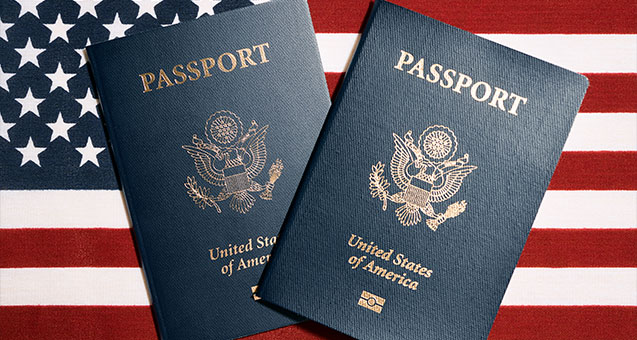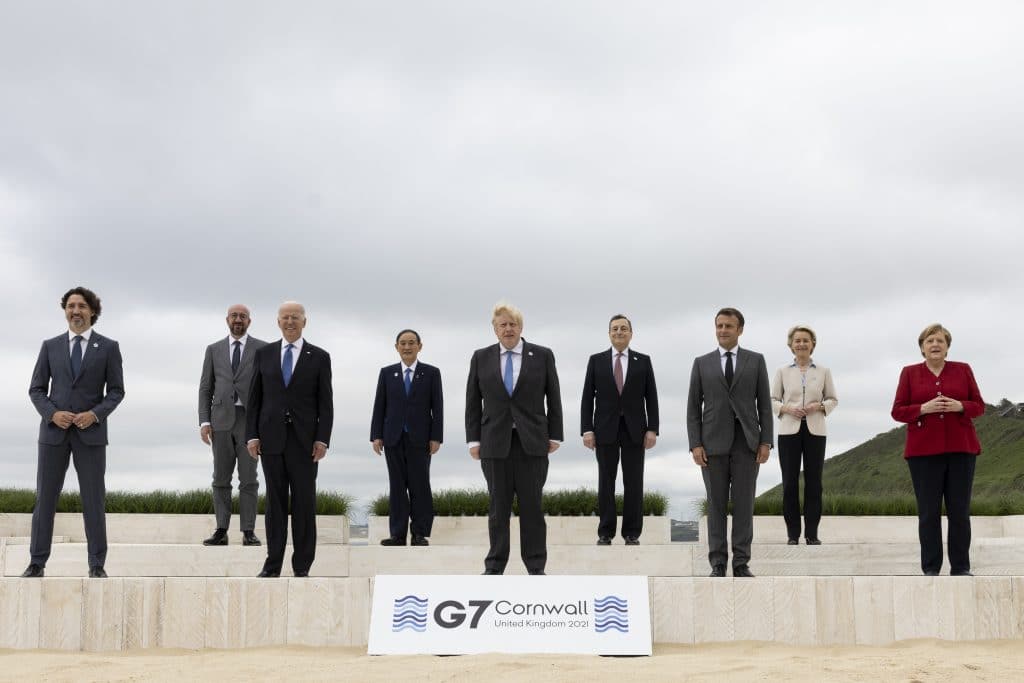The US passport has fallen out of the top 10 most powerful list for the first time in 20 years as China continues to make new friends.
And a second citizenship has become the new American dream for many.
The Henley Passport Index ranks passports on the ability of the holder to visit countries without a visa (judged to be its ‘power’).
The US passport is now 12th in the world, tied with Malaysia, with visa-free access to 180 destinations out of a possible 227.
The top three passports are Singapore (193 destinations), South Korea (190) and Japan (189); data for the rankings is drawn from the International Air Transport Association (IATA), Henley says.
Australia is currently ranked seventh with visa-free access to 185 destinations, including Europe’s Schengen Area; New Zealand is ranked sixth with 186 destinations.
FULL LIST: Click here to view the full 2025 global passport ranking index
Henley says the fall of the US passport is due to a loss of visa-free access which started in April when American lost visa-free access to Brazil (non-reciprocity) and were kept off China’s visa-free list.
Recently, Somalia’s launched an eVisa system while Vietnam excluded the US from its latest visa-free list which pushed the American passport out of the Top 10 index.
Dr. Christian Kaelin, chairman of Henley & Partners, notes that the weakening of the US passport is more than just due to politics.
“The declining strength of the US passport over the past decade is more than just a reshuffle in rankings — it signals a fundamental shift in global mobility and soft power dynamics,” he says.
“Nations that embrace openness and co-operation are surging ahead while those resting on past privilege are being left behind.”
The UK passport also fell to its lowest-ever position on the index, from 6th to 8th.
PASSPORT VISA RECIPROCITY MATTERS MORE
While American passport holders can visit 180 destinations visa-free, the US only allows 46 other nationalities to enter visa-free.
This puts it in 77th place on the Henley Openness Index, which ranks 199 countries and territories worldwide on the number of nationalities they allow in visa-free.
This disparity between visa free access and openness is one of the widest globally — second only to Australia, and just ahead of Canada, New Zealand, and Japan.
Annie Pforzheimer is a Senior Associate at the Washington DC-based Centre for Strategic and International Studies.
She notes that the American passport’s retreat is rooted in politics.
“Even before a second (Donald) Trump presidency, US policy had turned inward. That isolationist mindset is now being reflected in America’s loss of passport power,” she says.
CHINA’S DECADE OF GAINS
China has been among the biggest climbers on the Henley Passport Index over the past decade, from 94th place in 2015 to 64th in 2025, as its visa-free access increasing by 37 destinations.
On the Openness Index, China gave visa-free access to another 30 countries in the past year alone. It now sits in 65th position (76 nations), 30 more than the US; Australia is ranked 81st (34 nations) and New Zealand is 73rd (61 nations).
China is cementing its role as a global mobility powerhouse with its decision to give visa-free access to Russia follows new agreements with the Gulf states, South America and some European countries, Henley Partners says.
Dr. Tim Klatte, Partner at Grant Thornton China, highlights the geopolitical implications.
“Trump’s return to power brought fresh trade conflicts that weaken America’s mobility while China’s strategic openness boosts its global influence,” he says.
“These diverging paths will reshape economic and travel dynamics worldwide.”
SECOND CITIZEN AMERICANS
The decline in US passport power is also fuelling an unprecedented surge in demand for other residence and citizenship options, Henley & Partners data shows.
Americans have become by far the largest group of applicants for investment migration programs in 2025. By the end of Q3, applications from US nationals were 67% higher than for all of 2024, which itself recorded a 60% year-on-year increase.
Prof. Peter Spiro of Temple University Law School in Philadelphia says while US citizenship is still valuable, it’s no longer good enough as a standalone.
“In coming years, more Americans will be acquiring additional citizenships in whatever way they can,” he says.
“Multiple citizenship is being normalised in American society. While it may be a bit of an exaggeration, as one social media poster recently put it, ‘dual citizenship is the new American dream’.”
Henley & Partners are a UK-based international migration company that advises and helps with foreign citizenship and residency. They have 70 offices worldwide including in Australia (Melbourne).






